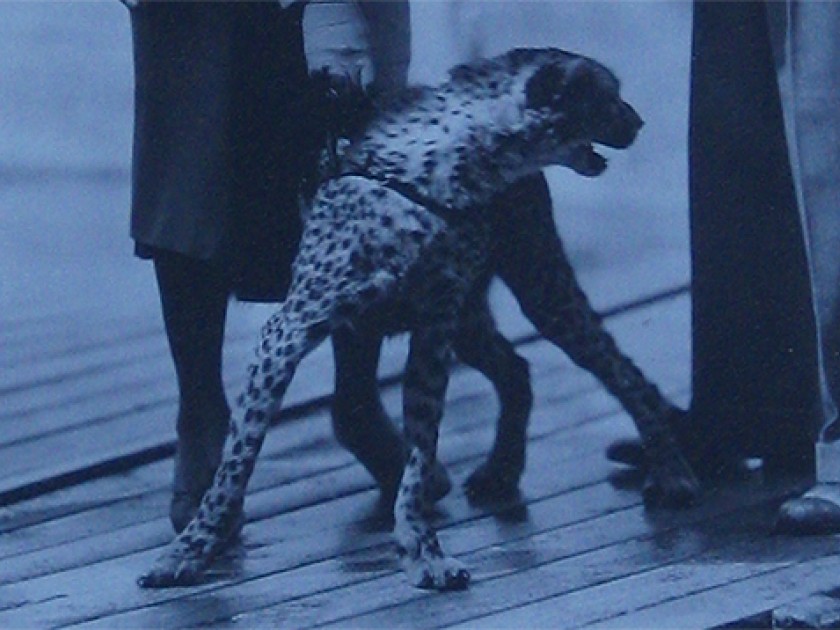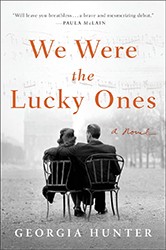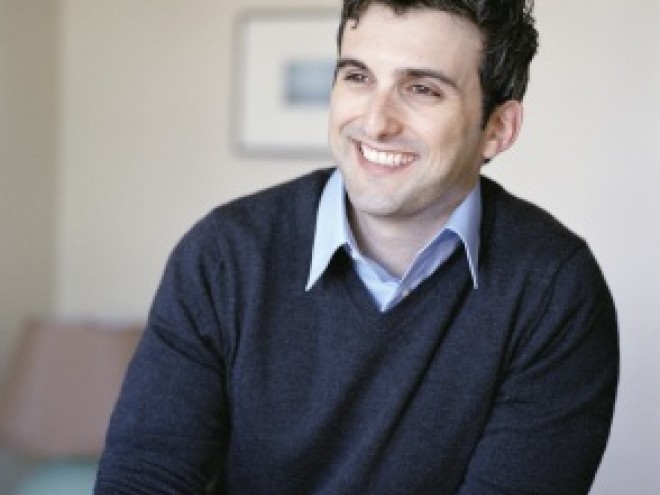
Earlier this week, Georgia Hunter wrote about discovering her grandfather’s personality along with his story of surviving the Holocaust, the inspiration for her novel We Were the Lucky Ones. Georgia is guest blogging for Jewish Book Council this week as part of the Visiting Scribe series here on The ProsenPeople.
When I was fifteen years old, I discovered that I came from a family of Holocaust survivors. Nine years later, armed with a digital voice recorder and a moleskin notebook, I set off to unearth and record my family’s story. I spent nearly a decade traversing the globe, interviewing family and digging up records from every possible source I could think of, eventually piecing together the bones of what would become my novel, We Were the Lucky Ones. The research was challenging, but even more of a test was deciding how to put my family’s narrative to paper — and where exactly to begin.
As authors often do, I spent months laboring over the opening for my book. Since many of the Kurcs lost touch with one other during the war, I knew each chapter would need to be told from a different relative’s perspective. I also knew I wanted Chapter One to be told through my grandfather’s eyes, and that it would be set in a jazz club in pre-war Paris — my grandfather was my link to the family story, and one of his best-known lifelong attributes was his passion for music.
My grandfather, Addy in the book, was the only member of his family who wasn’t in Poland at the start of the war. He was living in Toulouse, composing music and working as an engineer; often his weekends were spent tucked away in the music halls of Paris. Story has it, he received a letter in the spring of 1939 from his mother in Poland, urging him not to come home for Passover, but to stay in France; traveling across German-occupied Austria and Czechoslovakia, his mother worried, was too dangerous. For Addy, who hadn’t missed a family Seder in Radom in all of his 26 years, this letter was a turning point: it forced him to recognize the possibility of war, and to wonder whether he’d existed, until then, under a false sense of security. My idea for an opening chapter was to capture this turning point, while painting a picture of what life was like for Addy (as it was for many European Jews) before Poland fell to the Germans.
Researching Paris’s 1930s jazz scene, I stumbled upon the story of Josephine Baker, a young American entertainer legendary for her risqué attire and ostentatious dance routines. Baker performed often in Montmartre, a bohemian neighborhood in the city’s 18th arrondissement. When I read that she didn’t always perform alone — she was often accompanied by her diamond-collared pet cheetah, Chiquita — I was thrilled.
A cheetah! I remember thinking. What more dramatic opening could I ask for than a saber-toothed predator strolling onto the stage of a club in Montmartre, my grandfather looking on from a bar stool, an arm’s length away? The cat, I rationalized, could also be seen as a metaphor for the dangers to come. I wrote an opening paragraph I hoped would grab readers’ attention. Here’s how it read:
A cheetah saunters on stage and glares into the spotlight. The band stiffens. The music comes to an awkward halt and a hush comes over the crowd as the Grand Duc’s late-night patrons whisper and point, eyes trained on the large spotted animal. Addy sets his drink on the marble tabletop and stands, his gaze moving from the cat to the trumpet player squirming in his seat. Someone in the back of the smoke-filled room gives a whistle. The cheetah’s ears twitch. Finally, from behind the curtain a woman emerges, holding a leash in one hand and wearing nothing but a bejeweled bikini bottom and feathered headdress. The room erupts. The woman waves and shimmies toward center stage, beaming as the crowd cheers and the band, still trembling, gradually picks up where it left off.
As the chapter unfolds, I dive into my grandfather’s backstory, describing his mother’s letter, and what it meant to him. In my revisions, I agonized over the appropriate tone. Would he have felt angered by his mother’s request? Surprised? Guilty, for not seeing the signs earlier? After many (many) rounds of edits, I began to realize that, much as I loved the shock factor and tension the cheetah offered, it had begun to feel like a distraction. The real drama, I decided, wasn’t in Chiquita, but in the reality Addy would soon be forced to face.
I can see how it would have been easy for my grandfather to brush off the threats of war in the months leading up to it. He did not have the benefit of the perspective we have today. And he wasn’t alone in underestimating the potential for disaster. Some Parisians went so far as to call it the drôle de guerre, the Phony War. Now, of course, we know what was in store.
And so, I bid adieu to the cheetah in my opening, opting to give her just a brief mention later in the chapter. I focused instead on my grandfather, on the shadows of war that loomed overhead, on his unforeseeable future. This, I decided, was dramatic enough.
When Georgia Hunter was fifteen years old, she discovered that she came from a family of Holocaust survivors. Years later, she embarked on a journey of intensive research, determined to unearth and record her family’s remarkable story. The result is the New York Times bestseller, We Were the Lucky Ones, which has been published in over 20 languages and adapted for television by Hulu as a highly acclaimed limited series. One Good Thing is Georgia’s second novel. She lives in Connecticut with her husband and their two sons.



